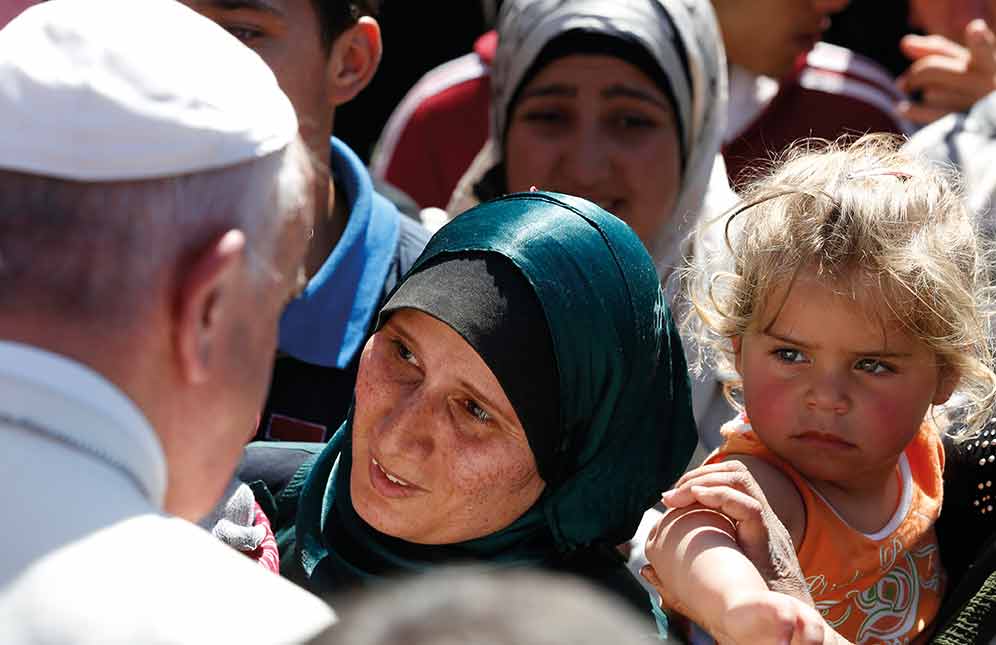Francis thus explained the purpose of the trip to the Greek island: to draw the world's attention to this serious humanitarian crisis.
– Giovanni Tridente, Rome
It is a very tired Pope who speaks to journalists on the return flight from Lesbos, the Greek island that has become a gateway to Europe for so many migrants and refugees fleeing famine and wars in the countries on the opposite shores of the Mediterranean. There, in the refugee camp of Moria, where several hundred are housed, Francis - together with His Holiness Bartholomew, Ecumenical Patriarch of Constantinople, and His Beatitude Ieronymos, Archbishop of Athens and of all Greece, has shaken handsOne by one, more than two hundred people, mainly children. A day that has been "for me too strong, too strong...". In the background, the Pope had announced on the way out that he would be "a journey marked by sadness": "we are going to meet the greatest humanitarian catastrophe after the Second World War".He had told reporters accompanying him.
The purpose of the trip, which lasted a few hours and was organized in a few days, was communicated by the Pope himself to the refugees: to be with you and to tell you that you are not alone, in addition to "to draw the world's attention to this grave humanitarian crisis." e "implore the solution of the same.": "We hope that the world will pay attention to these tragic and truly desperate situations of need, and respond in a way worthy of our common humanity.". He encourages them not to lose hope: "The greatest gift we can offer each other is love: a merciful look, a request to listen and understand each other, a word of encouragement, a prayer.". A visit among the "last", to sensitize the powerful, in the sign of ecumenism.
After shaking hands, hugging people and kissing children, Pope Francis, Patriarch Bartholomew and Archbishop Ieronymos signed a joint statement, calling for the attention of public opinion for this "colossal humanitarian crisis caused by the spread of violence and armed conflict, by the persecution and displacement of religious and ethnic minorities, as well as by the dispossession of families from their homes, violating their human dignity, freedoms and fundamental human rights.". If, on the one hand, it is necessary to restore to these people the levels of security and the return to their homes and communities, it is necessary to continue to make all necessary efforts to "to assist and protect refugees of all religious denominations.". In other words, the priorities of the international community must be the protection of human lives and the adoption of inclusive policies for all.









